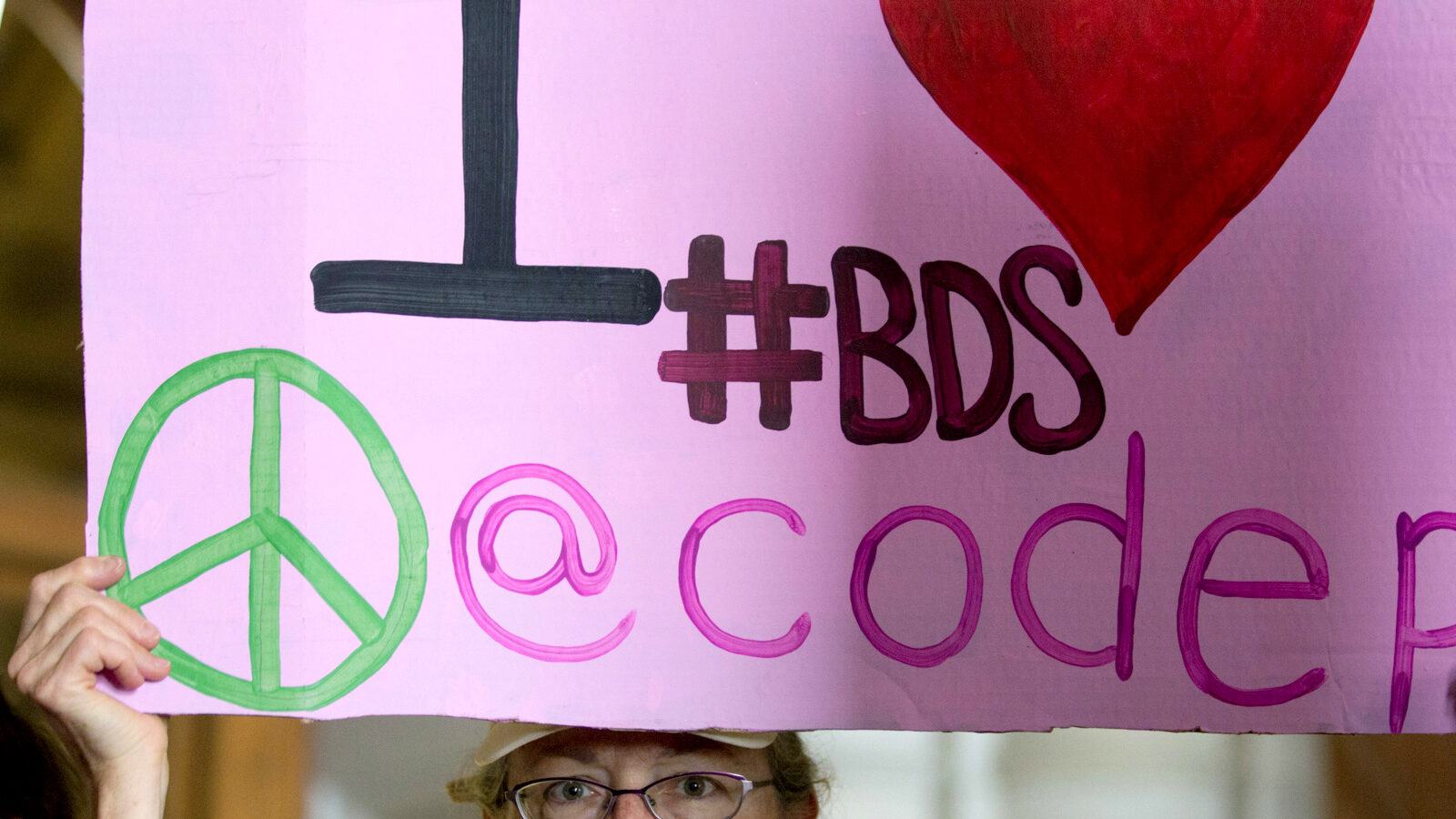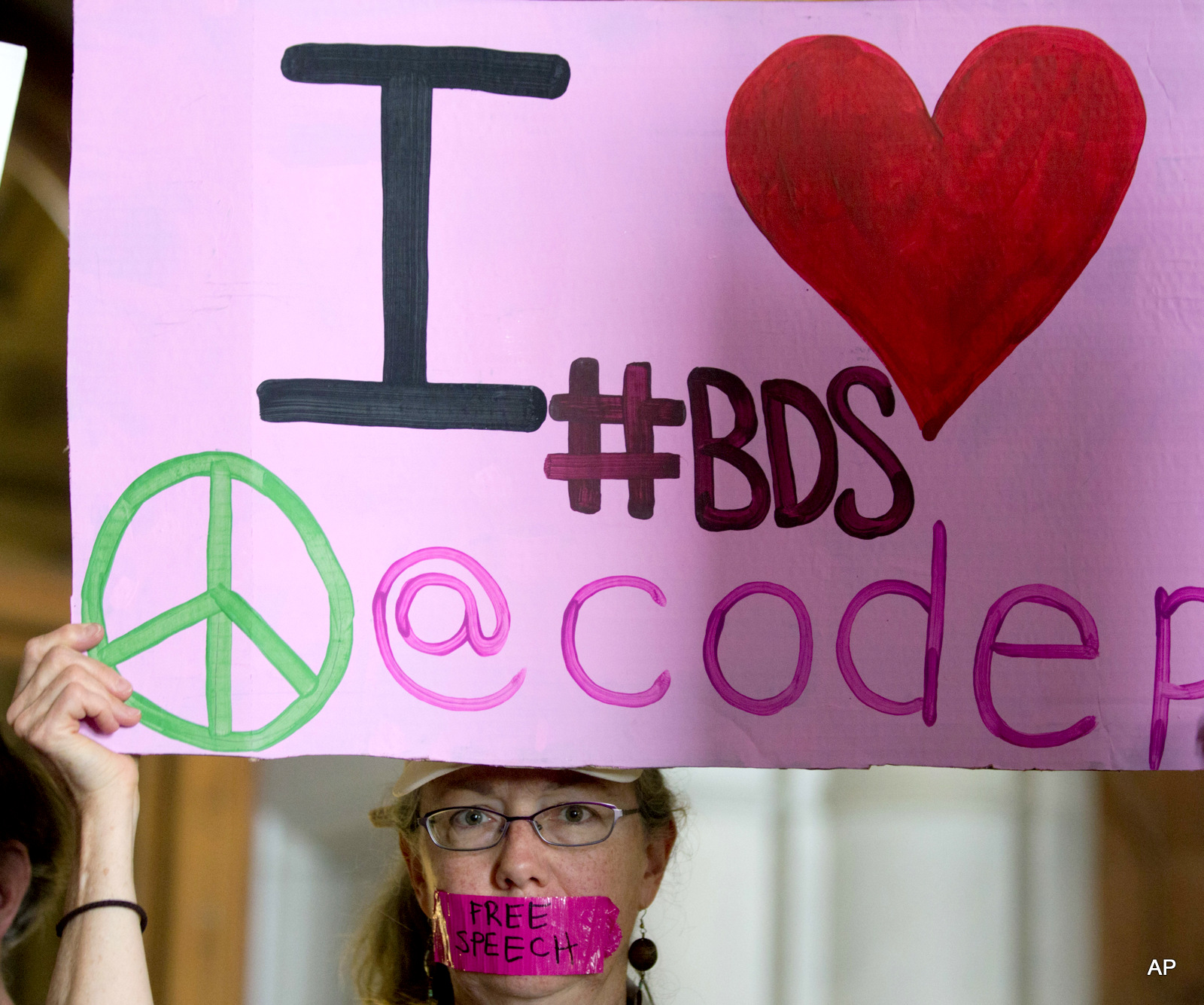
SEATTLE — (Analysis) Last month, Reuters reported that Dutch authorities opened an investigation into months of death threats made against a legal researcher who is working with a Palestinian legal rights group at the International Criminal Court.
Nada Kiswanson works on behalf of Al-Haq in The Hague, where she is pursuing Palestinian claims of Israeli war crimes and crimes against humanity committed during Operation Protective Edge. Israel’s assault on Gaza in the summer of 2014 killed 2,200 Palestinians–the vast majority of whom were civilians, including at least 500 children–though attacks on hospitals, schools, and journalists, and the systematic destruction of entire residential neighborhoods.
Charlotte Silver, writing for the Electronic Intifada on Aug. 15, reported:
“The Jordanian-Swedish human rights lawyer with the Palestinian group Al-Haq has reported receiving intimidating phone calls, emails and a bouquet of flowers with an ominous message, threatening the lives of her and her family. She has been also been contacted by someone impersonating a Dutch governmental official.”
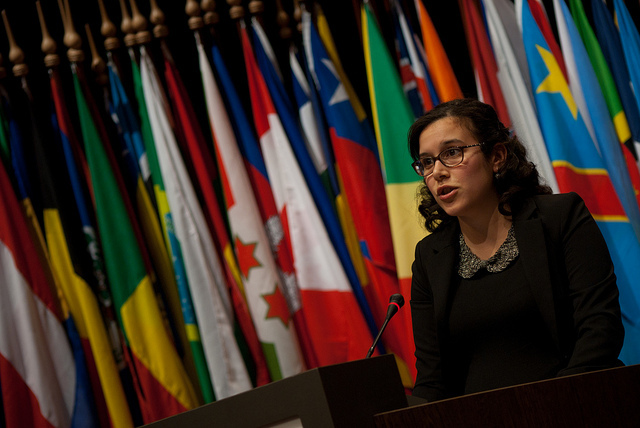
In an Aug. 21 report for Al-Jazeera, Jillian Kestler-D’Amours noted that while the harassment and intimidation campaign singled out Kiswanson as a key figure in the war crimes probe, Al-Haq has also been targeted. Shawan Jabarin, director of Al-Haq, said international donors were told that the organization was being investigated for corruption, among other false accusations.
Kiswanson pointed to Israel as the architect of the campaign, as did Jabarin, who told Al-Jazeera:
“Israel is behind it. Criminals, all the time, they are afraid. When you start searching and looking to identify them, they will become afraid. For them, it’s easy to defeat politicians, but it’s not easy for them to defeat the human rights defenders.”
When Mike Corder of The Associated Press reached out to the Israeli foreign ministry for comment, spokesman Emmanuel Nahshon dismissed the allegations, saying, “We do not react to such preposterous allegations.”
Journalist exposes Israel’s latest distraction: The war on ‘delegitimization’
For a few weeks, Nahshon’s brief statement was all that came out of the Israeli side regarding the allegations. On Sunday, though, the charges were confirmed by Yossi Melman, a veteran Israeli security reporter. (The original Hebrew can be found at Maariv; an English translation was later published by Middle East Eye.)
In his piece, Melman profiles the work of Israel’s new ministry of strategic affairs, which is headed by Sima Vaknin-Gil, a retired brigadier general in the Israeli Defense Forces and Israel’s former chief military censor.
This ministry is particularly concerned with what Strategic Affairs Minister Gilad Erdan and other government ministers refer to as the “delegitimization” of Israel through movements like Boycott, Divestment and Sanctions.
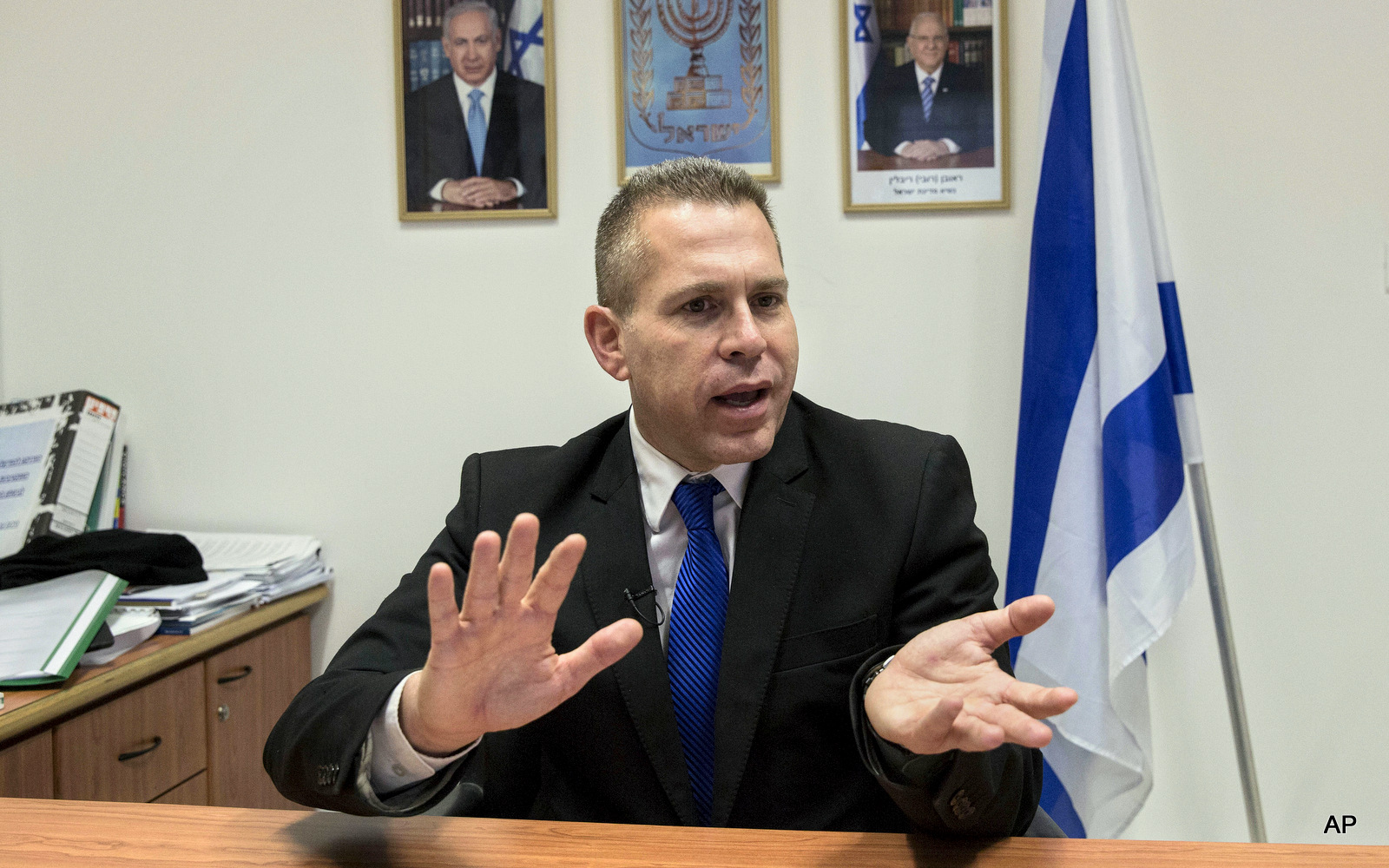
The rhetoric against those Israel perceives as participants in the “delegitimization” scheme has been steadily intensifying and taking on a distinctly violent tone, particularly in regards to the BDS movement. Speaking at a conference in March, Yisrael Katz, the country’s minister of transportation, intelligence and atomic energy, called for the “targeted civil thwarting” of the leaders of the BDS movement, including its founder, Omar Barghouti. The minister used a term derived from the Hebrew for the targeted killing of Palestinian militant leaders, which is euphemistically called “targeted civil prevention.”
Melman quotes Erdan as saying in a recent public appearance “that his office will do everything ‘to expose BDS’ activists, those who are behind them, those who are financing their actions in order to expose their true intentions and agenda and make the world aware and understand it.’”
The strategic affairs minister has also noted that BDS has come become a major element of Israeli foreign policy in the time since the Iran nuclear deal was completed. As the Iran deal loomed, Israel ginned up a campaign against Iran, largely to distract the world from the situation in Palestine, including Israel’s continued illegal occupation. But now that Iran’s nuclear threat has receded somewhat from the world stage, Israel’s right-wing government needs to create a new distraction.
Fighting BDS as a terrorist organization, not a political movement
Sima Vaknin-Gil has testified before the Knesset’s transparency committee on her mission as director general of the strategic affairs ministry. Saying that Israel is perceived as a “pariah state” around the world, she continued: “If you want to successfully conduct a battle, you have to do it with a lot of secrecy.”
World media has not communicated the danger of what Israel is doing. The Israeli government positions BDS not as a political movement, but as a terrorist organization. Just as the Israeli defense ministry is granted emergency authority in the event of a nuclear attack, Melman likens the new strategic affairs initiative to an official agency seeking to defend Israel from a monumental existential attack.
Pro-Israel advocates talk about BDS as if it would be the first nonviolent political movement to destroy a nation-state. Erdan himself has said that the ultimate goal of BDS is to destroy Israel, but he’s also gone farther than that, telling foreign diplomats in March:
“BDS should not be seen as a threat only to Israel — it is a threat to the international community, to your own countries, and to all who value human rights and freedoms.”
It’s important to note about Israel is that where there is smoke, there is fire. If Israel labels someone an enemy of the state, it doesn’t matter whether they are a political activist or a terrorist–they are in imminent danger.
Palestinians within Israel or the Occupied Territories are arrested and face trumped up charges, which they must plead down in order to avoid lengthy prison sentences. In that way, the Shin Bet, Israel’s domestic security agency, rids itself of troublesome political threats.
Officials face greater obstacles abroad, though. Israeli forces have kidnapped problematic figures like Nazi war criminal Adolf Eichmann, Israeli nuclear technician-turned-whistleblower Mordechai Vanunu, and former Gaza civil engineer Dirar Abu Sisi and returned them to Israel for prosecution in the past, but this violation of international law has become more difficult to get away with over the years. If Israel feels it has no way to silence its critics via prosecution, it may resort to unconventional means, like state-sponsored violence. It’s absolutely plausible that there could be Palestinian blood in European streets sometime in the future.
Another way Israel seeks to combat “delegitimization” efforts is by projecting a positive image of itself around the world. To this end, the strategic affairs ministry has joined forces with the tourism ministry. Melman reports:
“Public leaders and opinion shapers from various fields such as trade unions, showbiz, arts, journalists, and ethnic communities from around the world are invited to visit Israel — all expenses covered — in efforts to show that Israel is a free democratic, pluralistic state while diverting their attention from the daily reality of the occupation of the Palestinian West Bank.”
The New York Times’ new Israel bureau chief, Peter Baker, recently profiled what might have been just such a junket for a group of U.S. national security officials, who met with Israeli Prime Minister Benjamin Netanyahu for three hours. The event was organized by Dennis Ross, who Baker describes as “a Middle East advisor to Mr. Obama and other presidents.”
Queries to Baker, Ross, and the tourism ministry about who funded the trip have gone unanswered.
Participants must know that no matter how dispassionate their motivations may be, the only reason the Israeli government sponsors these events is to gain traction in a propaganda war with its enemies.
Officials with the ministry of strategic affairs told Melman that they are using pro-Israel groups like the American Israel Public Affairs Committee, or AIPAC, and Hillel to lobby against BDS. If this is true, it means that these groups are, in effect, lobbying on behalf of a foreign government.
Hillel President Eric Fingerhut has not responded to requests for comment on whether he or any Hillel staff or board members ever met with or discussed BDS with any Israeli government representatives concerning BDS.
Still, this raises the question of why Israel lobby groups don’t register as agents of a foreign power. It also further legitimates a charge often levelled against American Jews by anti-Semites, that they harbor dual loyalties. It is one thing to support Israel and another to do so at the direct bidding of an Israeli government ministry. Israel, which often cites the scourge of anti-Semitism in the Diaspora to buttress claims that Jewish life can only survive in Israel, in this case inspires it.
U.S. political leaders such as California Gov. Jerry Brown, who is contemplating signing into law a bill that would outlaw BDS, must understand that such legislation is part of a broader battle plan of which the death threats against Nada Kiswanson is an integral part. Foreign legislators must be put on notice that they are co-conspirators in these campaigns, and if violence ever results, the political fallout could be disastrous, no matter what their original intentions may have been.
Nations like the Netherlands, which recently rejected anti-BDS legislation, have put Israel on notice that some European Union states will not collaborate in efforts to criminalize legitimate political speech. While Israel itself has a law prescribing civil penalties against anyone who advocates BDS, doing so is not a criminal offense. Violators of the law may only be fined if a company or individual can prove damages. Thus, Israel is pressuring other nations to enact laws more draconian than its own on this subject.
More of a military undertaking than a diplomatic one
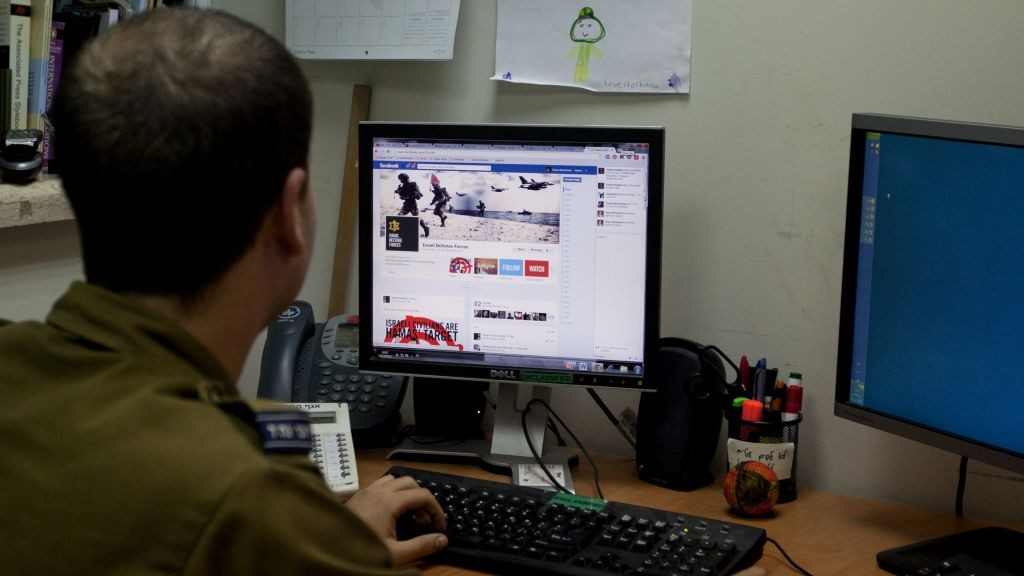
Melman profiles the operations of the ministry of strategic affairs in its new campaign against “delegitimization.” He describes an anti-BDS division of the ministry that’s divided into three units: intelligence, communication, and operations. There are 25 employees involved, mostly former intelligence officers. The head of the intelligence unit is a former defense ministry researcher who uses public and covert channels to search for embarrassing information on those targeted by the anti-BDS division. He is aided in his work by IDF military intelligence and the Shin Bet, which have both established their own divisions to combat BDS.
Though there is no law saying ministry of strategic affairs employees may not be identified in the media (as IDF, Shin Bet and Mossad officials may not be), Melman was denied permission to identify the unit heads. This reinforces the notion that the new initiative is a covert intelligence operation. That Israel should mount such an expensive and aggressive assault on a nonviolent movement engaged in legitimate political speech should trouble the world more than it has.
The attacks on Kiswanson indicate the sort of operations that will come out of this campaign against anything Israel has deemed an attempt to “delegitimize” it. Gilad Erdan, the strategic affairs minister, has conceded that the ministry engages in “special operations.” Melman, who even goes so far as to call these activities “dirty tricks,” warns: “Dirty tricks can turn into ugly smearing campaigns, threats and privacy invasions of BDS activists and supporters.”
For anyone not familiar with IDF lingo, this is clearly phrasing from the military lexicon. The ministry intends to engage in aggressive, even violent, acts against those working to “delegitimize” Israel, like Kiswanson. This is more of a military undertaking than a diplomatic one. The world needs to take notice, as this is more of a promise than a threat.
This strategy of intimidation and threats is a mirror image of the one Prime Minister Netanyahu used during Israel’s long campaign against Iran’s nuclear program. For the past 20 years, Netanyahu has cried wolf about Iran’s nuclear weapons capabilities, steering both Israel and the U.S. toward war with the Islamic Republic in the process.
Of course, those threats never materialized as action, and this new anti-BDS campaign is likely more of the same: threats of violence which are meant to pressure the world into halting the progress of the movement against Israeli impunity. But considering Israeli government agencies are condoning and coordinating aggressive campaigns to harass and threaten individuals and NGOs, it’s possible that the state will be far more tempted to engage in actual physical violence than it was when Iran was the target.
‘Eager to exercise all measures available’
Melman confirms through hints and whispers the explicit involvement of the ministry in the intimidation campaign mounting against the BDS movement, Palestinian human rights groups, and the individuals working in support of both. He writes:
“No one took responsibility for the threats against the lawyer and the cyber warfare, but the prime suspect is Israel. It is no secret that Erdan’s offices as well as the Israeli intelligence community are eager to exercise all the measures available for them against BDS.”
In the Hebrew version of the article, Melman goes on to explain that Israel’s justice ministry likely would not let these operations continue, fearing “that such secret ops will lead to botched operations which may endanger Israel’s foreign relations” and violate international law. Yet, he also notes that Israel in the past “has not hesitated to violate the laws and sovereignty of foreign states, including some of its best allies.”
He reports that the justice ministry is engaged in consultations to define what constitutes “delegitimization” and set parameters for addressing it. He concludes:
“It’s worthwhile for the staff [conducting these consultations] to remember that this sort of adventurism can entangle Israel. Despite the importance of the fight against BDS and those who seek to negate the existence of Israel, Israel’s democratic values–including free speech and the right to express dissenting and even provocative opinions and respect for international law–are foundational principles of its existence.”
In accepting Israel’s claim that the BDS movement seeks the destruction of Israel, Melman reveals himself as a loyal subject of the Israeli national security state. But despite his compromised position, even he is aware of the dangerous ground the ministry is treading. If anything, the warning he offers is far too restrained.


